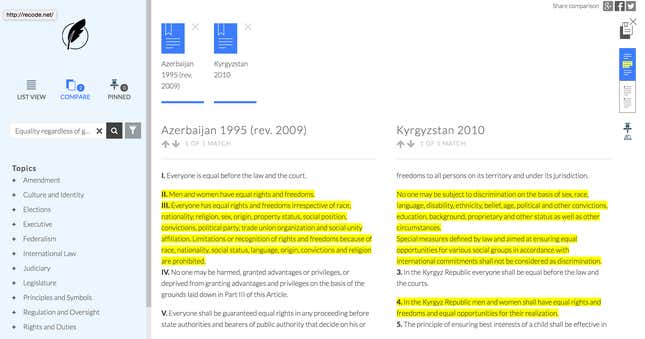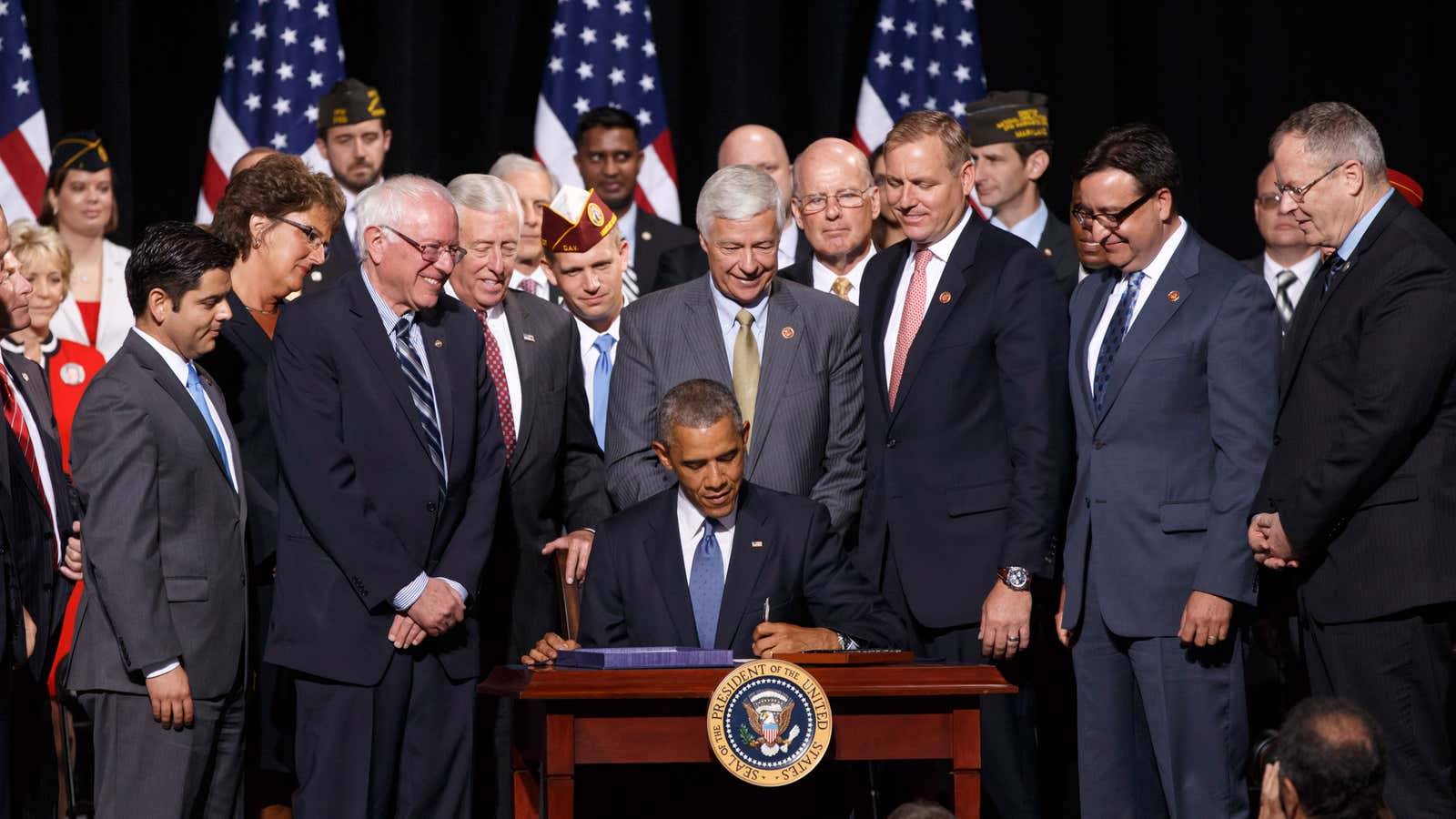In an ornate hall in the Philadelphia State House in 1787, a few dozen men drafted the US constitution. For four months, they debated and revised the document until they had something they could generally agree on. Today, they wouldn’t even have to leave their homes. A new site could let any diplomats-to-be work on drafting a new constitution in real time over the web.
Constitute is a repository of all the world’s constitutions, run by the Comparative Constitutions Project, and funded by Google Ideas and the Indigo Trust—a British charity that funds tech projects mainly in Africa. Founded in 2013 (and redesigned in December), Constitute allows users to compare phrasing and ideas across multiple constitutions, highlighting similarities between documents. All of the constitutions have been translated into English, and a selection have been translated into Arabic, for the site. The documents are entirely searchable. Users can either choose from a list of topics to search from—such as “equality regardless of gender” or the “right to bear arms” (an American favorite)—or search for common phrases. For example, “we the people,” the famous opening line of the US constitution, can be found in 50 of the world’s 194 constitutions.

Beyond search and comparisons, Constitute can be used to collaboratively create new constitutions, with the help of Google Docs. A user can select a part of a constitution, or parts from multiple countries’ constitutions, and then export them into a Google Doc. Like any other Google Doc, the constitution can be worked on by multiple people at once—James Madison and William Paterson would now be working out their differences on federalism over a Google Hangout. This probably would have come in handy when Iceland tried to crowd-source its revisions to its constitution in 2010, (which the parliament shot down.)
Zachary Elkins, the director of Constitute, told Quartz that constitutional drafters in Lybia, Myanmar, and Nepal have all used the site. It’s also a useful tool for those just looking to learn more about how governments are legally organized. Elkins said that Constitute has a ”pretty wide use, geographically.” The Arabic language site has recently seen a spike in usage in Saudi Arabia, a country with a new king and no constitution.
Hopefully with greater collaboration tools, delegates in new nations will be able to have more peaceable discourse about governmental policies than those that have come before them. Or perhaps nothing will change.
